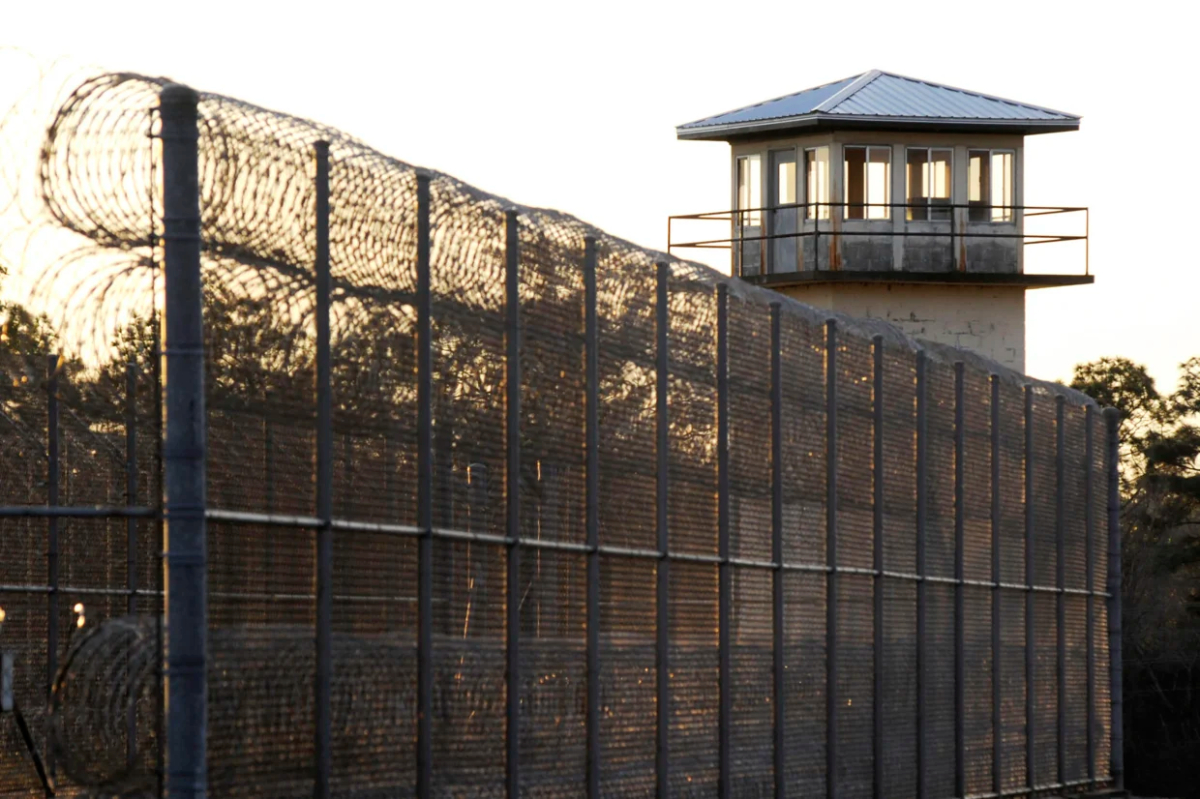- Kenneth Eugene Smith was found guilty of a murder for hire in 1988. Now, the state must request a fresh execution date in court.
- After Smith’s final objections centered on issues with intravenous lines during Alabama’s final two scheduled fatal injections, the postponement occurred.
- Gov. Kay Ivey of Alabama attributed the postponement of Smith’s execution on his last-minute appeals.
AMOORE, Alabama — Because state officials couldn’t locate a suitable vein to administer the fatal chemicals into, Alabama’s execution of a man convicted in the 1988 murder-for-hire killing of a preacher’s wife was halted just before the deadline of midnight on Thursday.
According to Kenneth Eugene Smith, 57,’s two needed injectable lines, prison employees attempted to connect them for almost one hour, according to Alabama Department of Corrections Commissioner John Hamm. Hamm claimed that despite trying numerous areas on Smith’s body, they were only able to establish one line and failed to establish the second.
“We followed our central line routine. We had to postpone the execution since we didn’t have enough time to finish that, according to Hamm.
When the 11th U.S. Circuit Court of Appeals imposed a stay earlier in the evening, the U.S. Supreme Court lifted it at around 10:20 p.m., paving the way for the execution. However, the state decided that the lethal injection would not take place that evening approximately an hour later. It is the second execution that the state has postponed since September due to complications setting up an IV.
After Smith’s final appeals, which centered on issues with the intravenous lines during the last two scheduled executions in Alabama, were postponed. The state needs to return to court to ask for a fresh execution date because the death warrant expired at midnight. Smith was transferred back to his usual death row cell, according to a prison official.
According to the prosecution, Smith was one of two men who received $1,000 each to kill Elizabeth Sennett on her husband’s behalf because he was heavily in debt and attempting to collect insurance.
Gov. Kay Ivey of Alabama attributed the postponement of Smith’s execution on his last-minute appeals.
There is no denying that Kenneth Eugene Smith was guilty of choosing the life of Elizabeth Dorlene Sennett over $1,000. A promise was given to Elizabeth’s family around 30 years ago that justice would be served by a legally issued death sentence. Although last-minute legal attempts to postpone or cancel the execution prevented that justice from being carried out tonight, it was the right thing to do, Ivey said.
Alabama has been under fire for issues with recent injections. A federal judge in Smith’s lawsuit asked the state how long was too long to try to draw a line during a hearing on Thursday.
Due to difficulties setting up an IV line, Joe Nathan James Jr.’s execution was postponed; thus, a group opposed to the death sentence claimed the execution was flawed. The state postponed Alan Miller’s execution in September because it was impossible to get to his veins. In a court document, Miller said that prison guards had stabbed him with needles for more than an hour and had even left him hanging on a gurney at one point before saying they would stop for the evening. The delays, according to prison officials, were caused by the state meticulously following its processes.
Sennett was discovered dead in her home with her husband on Coon Dog Cemetery Road in Colbert County, Alabama, on March 18, 1988. The 45-year-old woman had been stabbed eight times in the chest and once on either side of the neck, according to the coroner’s testimony. According to court records, her husband, Charles Sennett Sr., the pastor of the Westside Church of Christ, committed suicide as the murder investigation began to centre on him as a suspect.
The other man convicted in the murder, John Forrest Parker, was executed in 2010. “I apologise. Never expect me to ask for your forgiveness. Before being executed, Parker apologised to the victim’s boys. “I genuinely am sorry,” he said.
In a statement to police, Smith allegedly stated that it was “arranged for John and I to do the murder” and that he had taken items from the home to give the impression that a burglary had occurred. According to court documents, Smith’s defence at trial claimed that while he took part in the assault, he did not plan to murder her.
According to the prison system, Smith spoke with his lawyer and his family, including his wife, in the hours leading up to the execution. He sipped water and had cheese curls, but when served the prison breakfast, he turned it down.
Initially found guilty in 1989, Smith received the death penalty when a jury recommended it by a vote of 10 to 2. In 1992, his conviction was reversed after an appeal. In 1996, he was tried a second time and found guilty. By an 11-1 margin, the jury this time recommended a life sentence; however, the judge overruled the jury’s recommendation and gave Smith a death sentence.
The practise of allowing judges to override a jury’s recommended sentence in death penalty cases was abolished in Alabama in 2017; however, the change was not retroactive, therefore Smith and other death row inmates were unaffected. Smith is likely to become the first state prisoner sentenced by judicial override to be executed since the practise was outlawed, according to the Equal Justice Initiative, a nonprofit organisation with a presence in Alabama that represents prisoners.
On Wednesday, the U.S. Supreme Court rejected Smith’s request to have the constitutionality of his death sentence reviewed.
[embedpost slug=”food-and-beverage-companies-reduce-business-to-save-energy-costs/”]



















